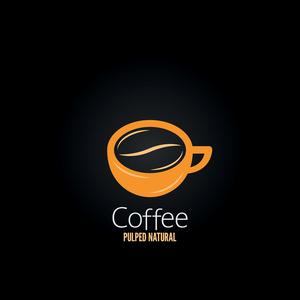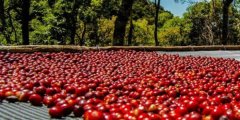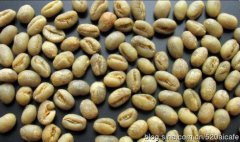A brief introduction to the traditional treatment method of grinding degree and baking degree of boutique coffee beans in Kahayang Gan Manor

"another important feature of Indonesian local cafes that cannot be ignored is that coffee shop owners are proud to recommend local coffee. Even big brands like Starbucks in Indonesia still offer high-quality coffee from Sumatra locally to meet the needs of customers. This is another factor that Indonesians take into account the local quality of coffee. The owner of the coffee shop commented on this issue: "when the new shop opened in 2000, Indonesians did not know espresso. Since they tasted espresso from Italy from chain stores, when independent coffee shops or local chain stores continue to open, people see that Italian coffee is not the only one with good taste. Coffee shops carefully recommend local coffee to make coffee consumers understand." The local coffee also tastes as good as Italian coffee.
Arabica coffee beans grow in tropical colder high-altitude areas, and the hot and humid zone that is not suitable for Arabica coffee is where robusta coffee grows. Robusta has a unique aroma (called "Rob smell", which some people think is moldy) and bitterness, accounting for only 2% of mixed coffee. 3%, the whole cup of coffee becomes Robusta flavor.
People like to compare the robusta species to the Arabica species of coffee. In fact, the robusta species was originally a mutant of the Congolese species (scientific name Cofffea canephora), so it is the Congolese species that should be compared with the Arabica species. To this day, however, the name of the Robusta species is commonly used by the public, and it is regarded as the same species as the Congolese species. About 65% of the coffee in circulation in the world market is Arabica.
According to the statistics of the International Coffee Organization (ICO), excluding the domestic transactions of each coffee-producing country, about 65% of the coffee in circulation in the world market is Arabica and 35% is robusta. Arabica species are characterized by slender and flat granules. Robusta coffee beans are round and round. West Africa is the origin of Liberian coffee by its shape. It has strong adaptability to all kinds of environments, whether high or low temperature, damp or dry, but it is not resistant to leaf rust and its flavor is worse than Arabica. Therefore, it is only traded in some West African countries (Libya, C ô te d'Ivoire, etc.), or planted for research.
As Indonesian consumers become more aware of quality coffee, the number of special coffee shops increases, according to coffee owners: "in big cities like Jakarta, Surabaya, Bandung and Bali, special coffee shops are growing rapidly, which also shows that consumers know more about coffee, and coffee shopkeepers must choose high-quality coffee materials. The best marketing plan is to hold the hearts of customers with quality products.
The leap of the local coffee shop chain. In addition to the establishment of more and more independent coffee shops, Italian coffee has become more and more popular and has even become a competitor to American brands Starbucks and CoffeeBean (which currently has 31 stores), which has led to the continuous production of more local brands of coffee in recent years.
Here are some of the more famous cafes in Indonesia:
Its flavor is so bright and strong that if you want to taste it directly, you have to consider it. It is generally used in instant coffee (which extracts about twice as much liquid coffee as Arabica), bottled coffee, liquid coffee and other industrial coffee. The caffeine content is about 3.2 per cent, much higher than 1.5 per cent of Arabica, but if you add in the hybrids of Arabica and robusta-such as the variant Columbia (Variedad Colombia), which belongs to the main Colombian coffee variety, has 1/4 Robusta pedigree, and therefore resistant to leaf rust and high yield-and its mutations, the classification of secondary coffee beans will be more complicated. Some Arabica coffee beans are quite close to the native species, while others are quite similar to the Robusta species. Even if the coffee has the same name (named from the place of origin), as long as the cultivated varieties are different, the flavor is different from the leaf rust-resistant varieties found in the African Congo, teaching the Arabica species to be more resistant to the disease.
PTJavArabica, Indonesia: speaking of the store opening process, the general manager of the baking company said: "Caswell'sCoffee was established in 2001, which is close to the time Starbucks set up in Indonesia. In addition to six points of sale, it is also famous for providing bakers in five-star hotels, restaurants and coffee shops. At the same time, it also holds coffee knowledge training for staff and holds many baristas competitions."
ExcelsoCoffee: a chain of coffee shops that integrates planting, production, export and sales equipment, has now opened 19 branches and has become a very popular local coffee chain among Indonesians.
BengawanSoloCoffee: there are 37 branches, starting with IpengWi-djojo 's obsession with coffee taste, focusing on choosing high-quality local ingredients and roasting their own coffee, making a well-known coffee shop as popular as a foreign coffee chain.
CoffeeToffee:2006 launched a local new chain store in Surabaya at the end of the year. With its love of espresso, CoffeeToffee has expanded to more than 100 branches over a period of four years.
The fact that national coffee exports are used as capital at the world-class level makes Indonesians more interested in entering the coffee industry, whether it is roasting coffee, opening coffee shops, or opening shop consultations. as a result, the growth of domestic coffee consumption is not just in terms of the number of products. In order to encourage better development of quality coffee, the coffee business still requires consumers to understand and accept more about the development of coffee cultivation knowledge promotion and development of high quality coffee in Indonesia. The President of the Indonesian Special Coffee Association (SCAI) gave a brief overview of the export coffee business.
"Indonesia's total exports grew by an average of 50-20% a year from 2000 to 2009, until it became the third largest coffee manufacturer in the world. Robasta coffee accounted for about 70% of the total export volume. Because the Dutch growers who first grew coffee did not fully understand Arabica coffee, coffee production was low and a lot of coffee was aborted. Farmers returned to grow robastian coffee, which is suitable for climate and resistant to disease. later, farmers learned the corresponding knowledge and set up organizations to promote Arabica coffee cultivation, which increased farmers' confidence in growing high-quality coffee. This is also the demand of the growing market. In 2010, the main obstacle to coffee exports was that Indonesia faced longer and heavier rainfall than the normal rainy season, resulting in reduced production. But there is also a demand for coffee from all over the world. This means that Indonesian coffee is being demanded by more and more people, and is becoming more and more high-quality and international. Coffee shops and popular Italian coffee can be said that the coffee market in Indonesia is like many ASEAN countries, the domestic market and independent coffee shops will begin to develop from American giants to enter the market. This important phenomenon has changed the perception of coffee related to life and encouraged local enterprises to open their own cafes. The coffee shop owner expressed the popular view of Italian coffee: "at present, Indonesian coffee, especially in big cities is developing, the market is growing, and consumers are beginning to know more about coffee." Independent stores and coffee chains have set up a lot and have been growing in the past 4-5 years, and I believe the coffee business will continue to grow in the next 5 years. These stores have increased coffee production and consumption in Indonesia and led to the creation of more local cafes.
Important Notice :
前街咖啡 FrontStreet Coffee has moved to new addredd:
FrontStreet Coffee Address: 315,Donghua East Road,GuangZhou
Tel:020 38364473
- Prev

A brief introduction to the cultivation of high-quality coffee beans in Kahayang Gan Manor, geographical location, climate and altitude
Arabica coffee beans grow in tropical colder high-altitude areas, and the hot and humid zone that is not suitable for Arabica coffee is where robusta coffee grows. Robusta has a unique aroma (called Rob smell, which some people think is musty) and bitter, accounting for only 2% of mixed coffee. 3% of mixed coffee, the whole cup of coffee becomes Robusta flavor. People are all
- Next

A brief introduction to the flavor, taste and aroma characteristics of boutique coffee beans in La Souna Vahana Manor.
Java produces exquisite aromatic coffee with relatively low acidity, delicate taste and good balance. The aroma and acidity of Java coffee is better than that of Sumatra and Sulawesi. The best plantations in Java are Blawan, Jambit, Kayumas and Pankur. Java mocha is Java coffee.
Related
- Does Rose Summer choose Blue, Green or Red? Detailed explanation of Rose Summer Coffee plots and Classification in Panamanian Jade Manor
- What is the difference between the origin, producing area, processing plant, cooperative and manor of coffee beans?
- How fine does the espresso powder fit? how to grind the espresso?
- Sca coffee roasting degree color card coffee roasting degree 8 roasting color values what do you mean?
- The practice of lattes: how to make lattes at home
- Introduction to Indonesian Fine Coffee beans-- Java Coffee producing area of Indonesian Arabica Coffee
- How much will the flavor of light and medium roasted rose summer be expressed? What baking level is rose summer suitable for?
- Introduction to the characteristics of washing, sun-drying or wet-planing coffee commonly used in Mantenin, Indonesia
- Price characteristics of Arabica Coffee Bean Starbucks introduction to Manning Coffee Bean Taste producing area Variety Manor
- What is the authentic Yega flavor? What are the flavor characteristics of the really excellent Yejasuffi coffee beans?

